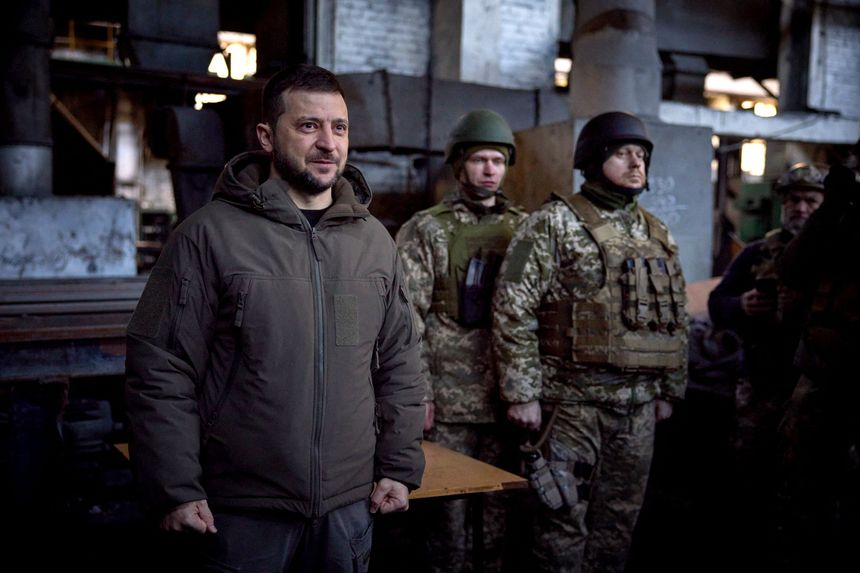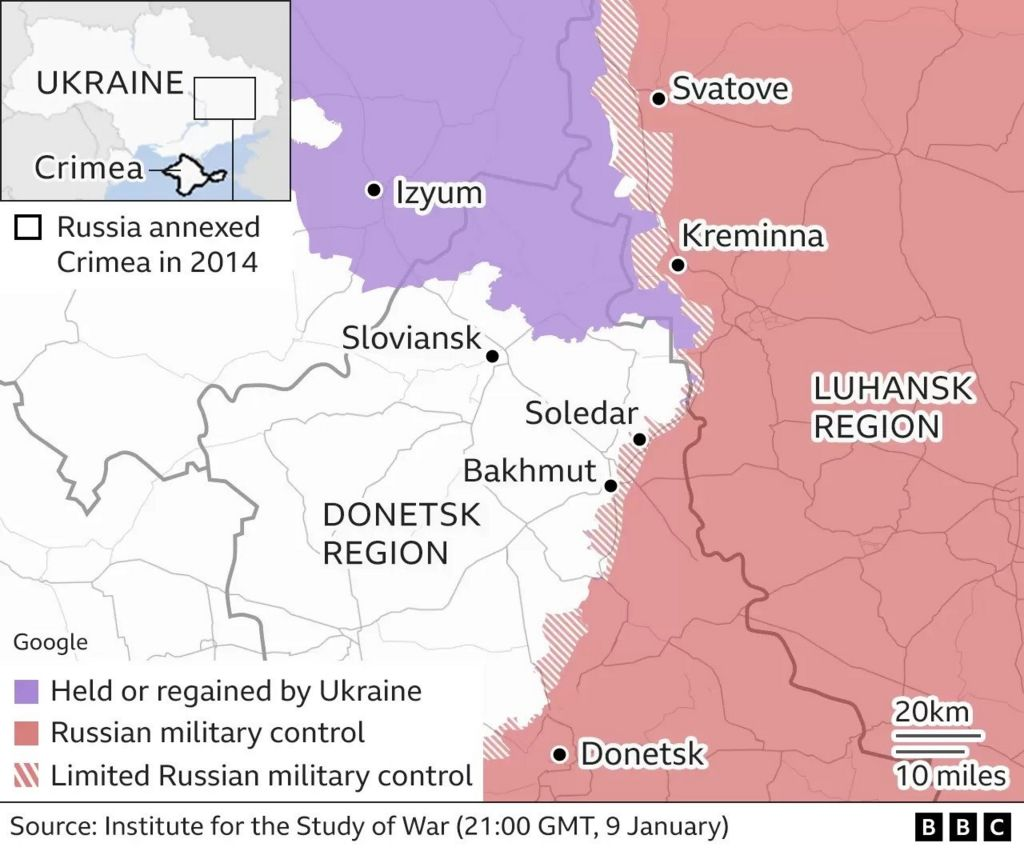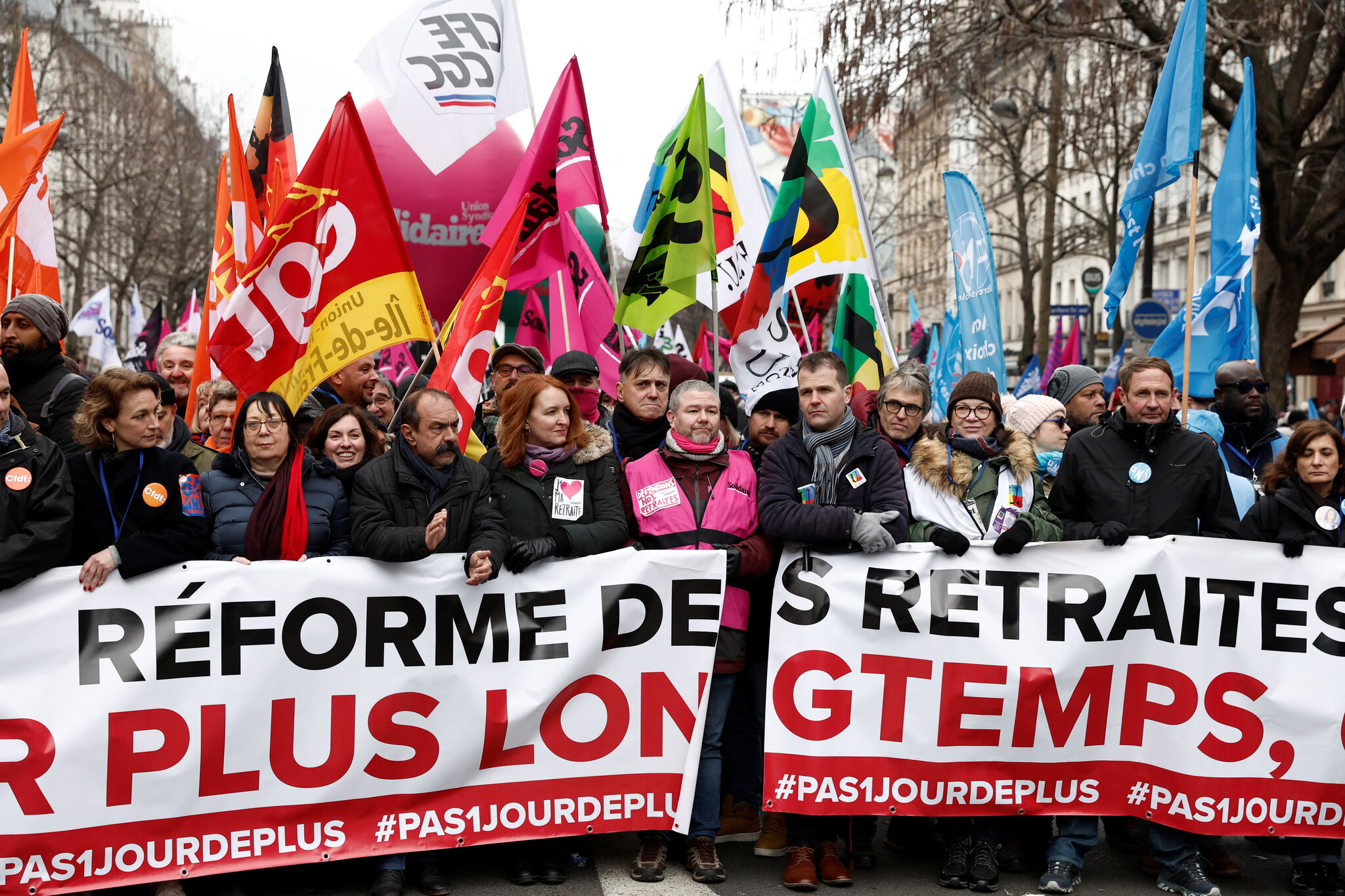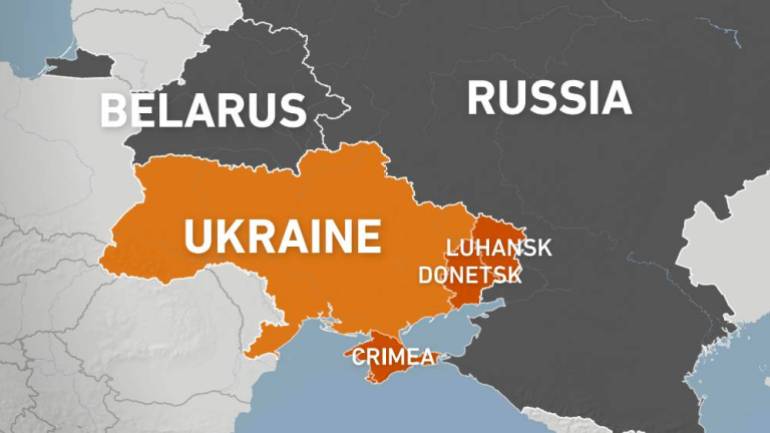Zelensky in the US, Woman education ban in Afghanistan, Britain economy on fire, Peru-Mexico relations
Zelensky in the US
Ukrainian President Vladimir Zelenskiy is heading to the U.S. Capitol in Washington, D.C., today on his first known trip outside of Ukraine since Russia invaded in February. Zelensky tweeted this morning that he was on his way to the U.S. to "strengthen the resilience and defense capabilities of Ukraine and discuss cooperation between the two countries." It is expected that the Ukrainian president will meet with his U.S. counterpart, Joe Biden, at the White House and also deliver an address to Congress. The idea of a visit was reportedly first discussed in a call between Biden and Zelenskiy on December 11th, and then a formal invitation was issued three days later. Given its obviously highly sensitive nature and the potential security threats, the visit was kept under wraps until the story was broken by Punchbowl News, which obtained a letter from House Speaker Nancy Pelosi, who urged lawmakers to come to the U.S. Capitol on Wednesday night for a session with a "very special focus on democracy."

So what exactly can we expect from Zelenskiy's visit? While a statement put out by the White House says that President Biden will announce a significant new package of nearly two billion dollars of security assistance for Ukraine, crucially, this new package will come with what the White House calls a very important new capability: a Patriot missile battery. The Patriot system is a sophisticated surface-to-air guided missile system used by the U.S. Army and several of its allies around the world. The U.S. has been supplying Ukraine with Highmar's rocket launchers and Nasam's defense systems, but has previously resisted sending the Patriot system to Ukraine. However, continued lobbying from Ukraine, as well as Russia's ongoing attacks on Ukrainian critical infrastructure, which the White House described as barbaric, prompted the United States to send a Patriot battery to Ukraine. The U.S. military will train Ukrainian troops in a third country on how to use the Patriot system, so it is likely to take a little time before it becomes operational in Ukraine.
Zelensky's visit also comes at a time when the U.S. Congress is set to pass its big end-of-year Omnibus spending bill, which includes a further 44 billion dollars in emergency aid for Ukraine. That would be the biggest package of American assistance for Ukraine so far, and bring the total amount of U.S. aid to Ukraine since the February invasion to more than 100 billion dollars. Zelensky's visit to Washington can also be seen as an attempt to shore up support for Ukraine in Congress. So far, assistance packages for Ukraine have been passed in a bipartisan way with support from Democrats and Republicans alike, but in January, Republicans will take control of the House of Representatives, which may cause some unease in Ukraine. As the midterm elections in the United States approach, House Majority Leader Kevin McCarthy suggested that a Republican-controlled House might be hesitant to write a "blank check" to Ukraine.
Woman education ban in Afghanistan
The Taliban government has banned women in the country from attending university, marking a further crackdown on women's freedoms in the country following the Taliban's takeover last year. In a letter to all government and private universities, Afghanistan's minister of higher education wrote that "according to a cabinet decision, you are all informed to immediately implement the mentioned order of suspending the education of females until further notice." The letter ominously adds, "make certain that the order is executed." The Taliban has defended the ban, saying "it was necessary to preserve national interest and women's honor." Some women protested the move in Kabul on Wednesday, but the small demonstrations were quickly shut down. The move marks a doubling down on restricting women's access to formal education, coming after the Taliban decided to exclude women from most secondary schools and impose restrictions on the subjects that they could study. The United States Special Representative for Afghanistan called the Taliban's decision "a new low, further violating the right to equal education and deepening the erasure of women from Afghan society."

Britain economy on fire
In Britain, the country is facing a very difficult winter following an inflation and cost of living crisis. Many workers in both the public and private sectors are feeling the squeeze, with pay offers generally falling well below inflation, which is currently still over 10 percent, meaning many workers face a real-terms pay cut. This has led to rail workers, postal workers, nurses, border force officers, bus drivers, teachers, emergency service workers, and more to strike or plan strikes in protest. Today marks the first day of an ambulance worker strike, which is the first in a generation. This is set to be one of the most potentially dangerous strikes, with Health Minister Will Quince issuing advice suggesting that people should try not to get drunk or engage in dangerous sports in an attempt to reduce demand for emergency services. He even went as far as to suggest that people should avoid unnecessary car trips. A member of the opposition Labor Party has suggested that his comments are an admission of government failure, while the Liberal Democrats said if the health secretary cannot keep ambulances running over the winter period, then he should resign.
Peru-Mexico relations
A diplomatic spat between Peru and Mexico has deepened after Peru ordered the Mexican ambassador to leave the country within 72 hours and declared him persona non grata. The feud between the two Latin American countries came about after the impeachment and arrest of Peru's now-former president, Pedro Castillo, who now faces charges of rebellion and conspiracy after he attempted to dissolve the opposition-controlled Congress in what his critics called an "attempted coup." Peru's decision to expel the Mexican ambassador came hours after Mexico's top diplomat announced that his country had granted asylum to the family of Pedro Castillo. Peru's foreign ministry said that the move was due to repeated statements from the highest authorities of Mexico regarding the political situation in Peru, which constitutes unacceptable interference in internal affairs. Mexico's President Andrés Manuel López Obrador has criticized the removal of Castillo, who is a fellow leftist, calling it undemocratic and stressing that he still recognizes him as the country's leader. Now, the government of Peru has announced that it has formally approved the safe passage of Castillo's wife and children to Mexico.
Sources:
https://www.bbc.com/news/world-asia-64045497
https://edition.cnn.com/2022/12/21/uk/uk-strikes-explainer-ambulance-nurses-railways-gbr-intl/index.html
https://www.reuters.com/world/americas/mexico-says-has-granted-asylum-family-perus-castillo-2022-12-20/
https://www.dw.com/en/us-president-biden-to-announce-patriot-missiles-for-ukraine-during-zelenskyys-visit-to-washington/a-64172166










Comments